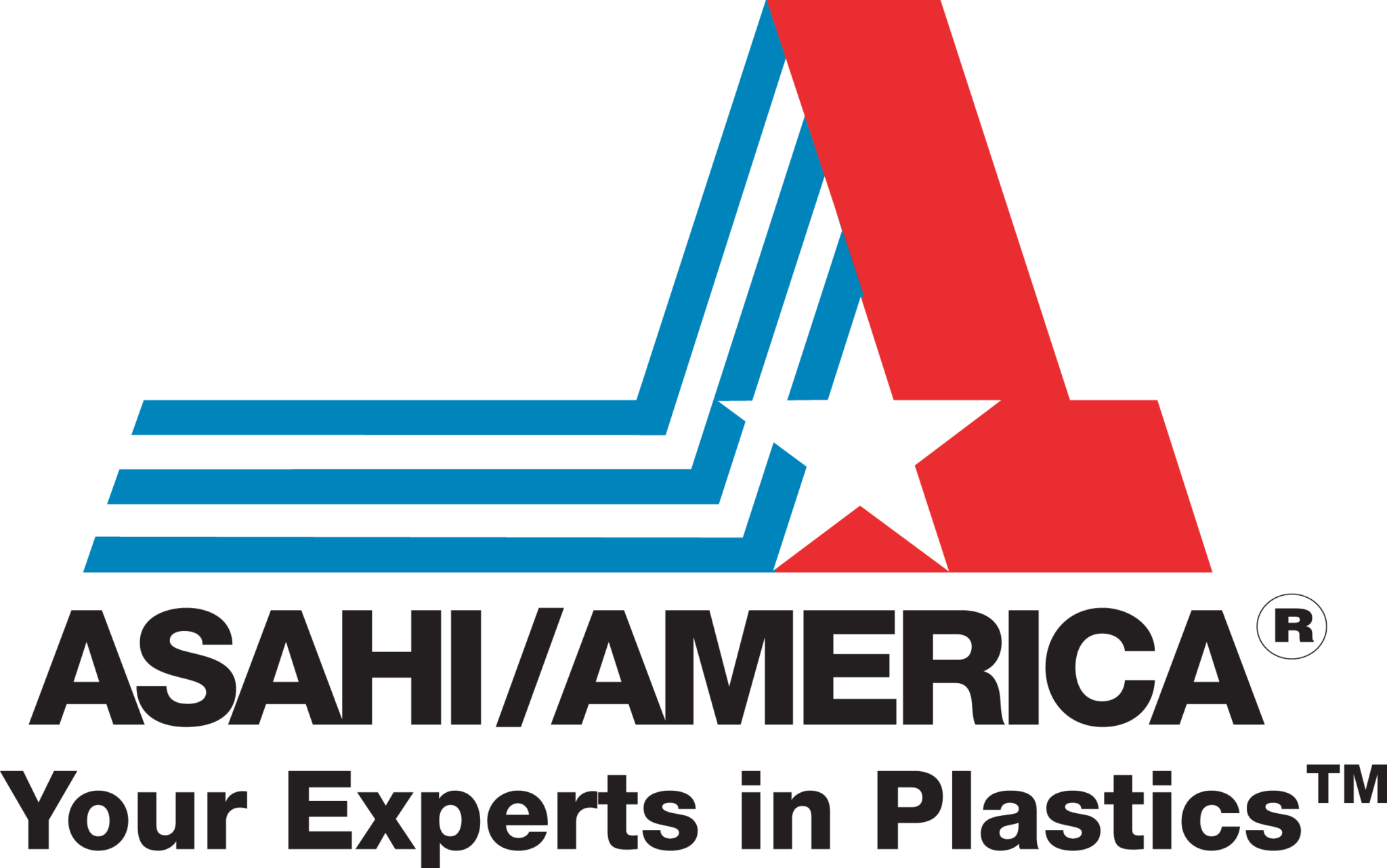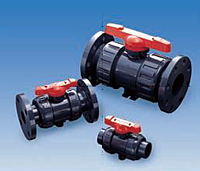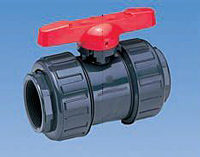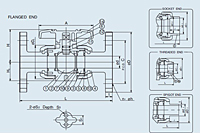- All CategoriesAll Categories
- Valves & ActuationValves & Actuation
- Manual Valves Manual Valves
- Ball Valves Ball Valves
- T-21 Ball Valve 0.5-4T-21 Ball Valve 0.5-4"
- Item # 1637005
Item # 1637005, PVDF T-21 Ball Valve
VIEW CAD DRAWING
DOWNLOADS
Specifications
Standard |
N/A ANSI |
Size |
N/A 1/2in (15mm) |
Material |
N/A PVDF |
Class |
N/A 150 |
Schedule |
N/A 80 |
Cv Coefficient |
N/A 14 |
End Size |
N/A 1/2 |
Second End Type |
N/A IPS Socket |
Second End Size |
N/A 1/2 |
End Type |
N/A IPS Socket |
Elastomer |
N/A EPDM |
Dimensions
Length (L) |
N/A 4.45 in |
Height (H) |
N/A 2.03 in |
H1 |
N/A 1.14 in |
S1 |
N/A 0.75 in |
S2 |
N/A 0.29 in |
D1 |
N/A 1.89 in |
A |
N/A 3.62 in |
d |
N/A 0.83 in |
l |
N/A 0.87 in |
Options
|
N/A
|
Sample Specification
|
N/A All Type-21/21A ball valves, sizes 1/2” to 4”, shall be of true union design with two-way blocking capability. All O-rings shall be EPDM or FKM with PTFE seats. PTFE seats shall have elastomeric backing cushion of the same material as the valve seals. Stem shall have double O-rings and be of blowoutproof design. The valve handle shall double as carrier removal and/or tightening tool. ISO mounting pad shall be integrally molded to valve body for actuation. PVC conforming to ASTM D1784 Cell Classification 12454A, CPVC conforming to ASTM D1784 Cell Classification 23567-A, PP conforming to ASTM D4101 Cell Classification PP0210B67272 and PVDF conforming to ASTM D3222 Cell Classification Type II. The ball valves, except PP, shall have a pressure rating of 230psi for sizes 1/2” to 3” and 150psi for 4” (150psi for PP, all sizes) at 70º F. Type-21/21A ball valves must carry a two year guarantee, as manufactured by Asahi/America, Inc. |
Troubleshooting
|
N/A
What if fluid leaks when valve is fully closed?
|










